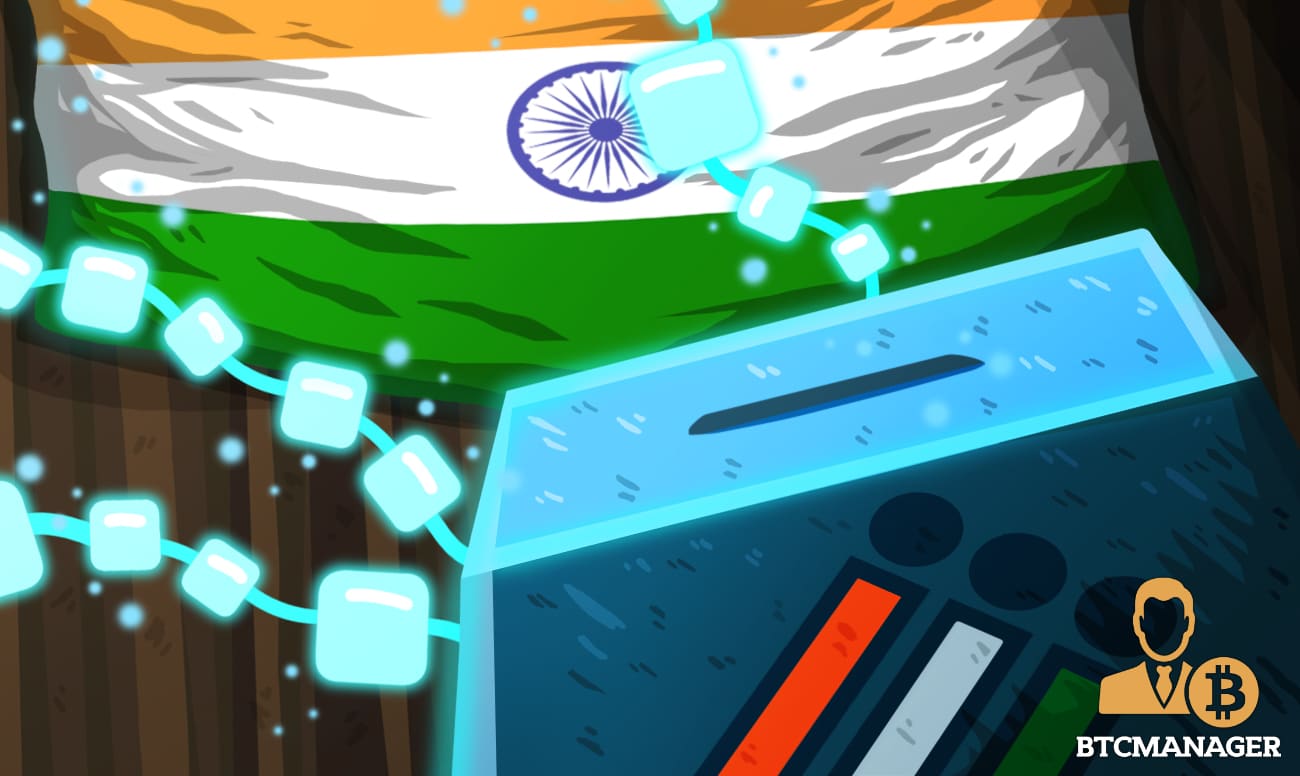India Looking to Tap Blockchain Technology for Remote Voting

India’s Election Commission (EC) is currently weighing the possibility of integrating distributed ledger technology (DLT) into the nation’s electioneering process to make it possible for residents to vote remotely in a secure manner, reports TheIndianExpress on August 10, 2020.
India May Adopt Blockchain for Voting
In a bid to eliminate geographical barriers in the electioneering process and make it possible for citizens to vote seamlessly from wherever they may be across the nation, Indian authorities are now pondering on whether to adopt blockchain technology.
Per sources close to the matter, India’s Election Commission (EC) officials led by Commissioner Sushil Chandra held a meeting on August 10, to discuss how the voters can overcome geographical hurdles and cast their votes in a secure and transparent manner.
Just like in most jurisdictions, voters must cast their votes from the same geographical area as the exact location where they initially carried out their voters’ registration. This makes it impossible for a voter to participate in voting when he/she is away from that location when the election takes place.
Blockchain to the Rescue
To eliminate this bottleneck, the Election Commission and the Tamil Nadu e-Governance Agency (TNeGA) met via a webinar to discuss the possibility of implementing a remote voting system that could support “live, auditable, transparent and frictionless” voting.
Umesh Sinha, EC Secretary-General said:
“Today our process is tied up to a geographical location. I am sure we can work out this [blockchain] technology. The big challenge is to formulate a secure, safe, and reliable system. This is a massive task, however, it will facilitate easy participation for voters who are unable to visit the polling station during elections.”
Notably, Chandra has made it clear that while developing a remote voting system is very essential, the nation must critically examine the pitfalls of DLT including scalability issues.
Vijay Raghavan, Principal Scientific Adviser to the government says he firmly believes in the potential of blockchain, however, the DLT-based remote voting system must first be trialed at the grassroots on a small scale, to evaluate its efficiency before rolling it out at the national level.
Blockchain technology is increasingly being explored for remote voting across various jurisdictions, however, recent research reports suggest that there is more work to be done before the burgeoning technology can be used for complex elections.













